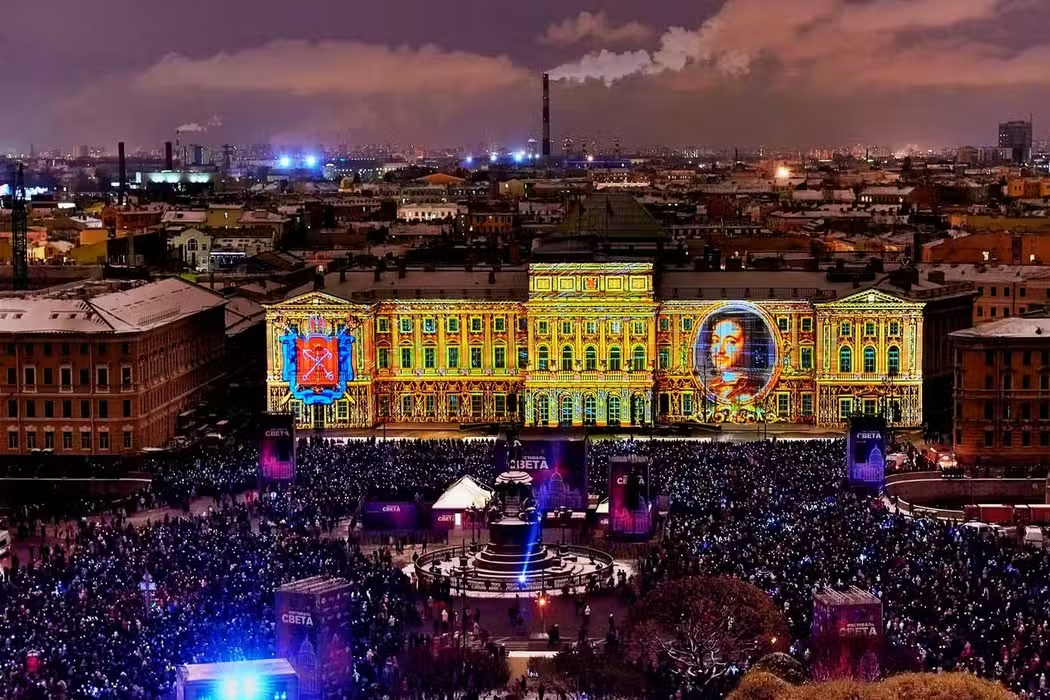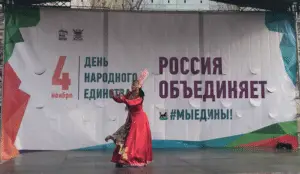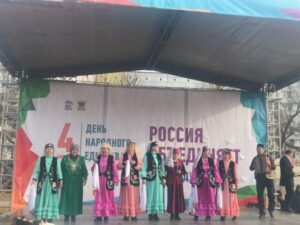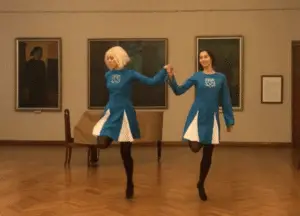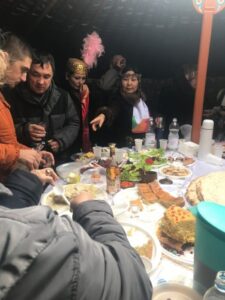National Unity Day is celebrated on November 4th. Russia’s absolute newest holiday, created in 2004, celebrates the liberation of Moscow from Polish troops in 1612 and the subsequent end of the “time of troubles.” This is the first time in nearly 400 years, however, that an official state holiday has marked the occasion, leading many Russians to ask why it was created. It’s very possible that when the Duma abolished November 7 (formerly Revolution Day) from the national calendar, they felt a holiday was needed in November so that people would not have to go from June to January without one. November 4 was sufficiently important. Given its proximity to the old holiday, many Russians still associate it with the communist holiday. The communists have actively boycotted the holiday and marked the seventh with demonstrations instead. In any case, the new holiday is celebrated the same as the old holiday: with political activism. Nationalist, Communists, and United Russia-connected organizations all tend to have rallies and marches on this day.
Where did you go to experience the holiday? What did you see and what did you do there?
Sarah Gendron (St. Petersburg, Fall 2019): I went to the Festival of Light event which was advertised as a Unity Day festivity despite being the night before, on Nov 3rd. It was at Palace Square and they displayed an incredible light show projecting complex images on the walls of the Hermitage General Staff Building. Thousands of people gathered to watch the show. The lights told a short story, with a “player” advancing through different levels of a game. The complexity of the lights and what they were able to create using them was fascinating.
Alaina DeLeo (Irkutsk, Fall 2017): I watched the concert in Kirov Square and it was amazing. There were performances from all different groups ranging from a children’s taekwondo demonstration to old babushkas singing traditional music. Watching the old women sing was so fun because they were honestly not very good singers but they had so much pride and were so cute that everyone loved it anyway. There were solo dances by some Northern Siberian Indigenous groups and Uzbekistan. There was also a traditional dance from Buryatia that everyone took part in and we all danced around the central fountain. After the performance, there were many booths serving food and some even for free. I had the chance to eat in a yurt with some of the performers and people from the Russian-German society. There was also a booth serving free kasha with meat and it was actually very high in quality. The cute babushkas did not skimp on the portions either. I sat and ate with all the people and could see many people marching down the streets waving Russian flags and singing Russian traditional songs. The whole experience was amazing. Many people chose to wear their traditional clothing and seeing all the different colors and styles was breathtaking. Many museums in Irkutsk are free for the holiday, so this is a great opportunity to visit museums for free. I went to the Decembrists’ Museum and the Art Museum which both were very cool. Personally, I am not a museum fan, but they were set up very well. For the holiday, the art museum had free master classes in abstract art as well as a scavenger hunt that resulted in a free ticket for entry at a later date. There was also a small concert in the main hall featuring world dance and several choirs singing.
What other events were held in the area? Were there other events to choose from either inside the city or outside?
Sarah Gendron (St. Petersburg, Fall 2019): There weren’t too many other public events held in Saint Petersburg on Unity Day. A new exhibit called “We are a Great Country” opened and spectators were able to watch a mock reenactment of a battle at one of the museums, and there was also a festive concert called “We are Millions” with performances from different dance groups and singers. Opera singer Albert Zhalilov performed, as well as singer Roman Grafov. Aside from this, there weren’t many events advertised.
Alaina DeLeo (Irkutsk, Fall 2017):
Did you see any commercialization of this holiday?
Sarah Gendron (St. Petersburg, Fall 2019): I did not actually see much, if any, commercialization of the holiday. I don’t recall any sales or seeing holiday specific souvenirs. There were people selling souvenirs at the Festival of Light, but they weren’t specific to Unity Day. The souvenirs were typical ones, and some Russian pop-culture ones (I saw some shirts with Danila from Brat for sale).
Alaina DeLeo (Irkutsk, Fall 2017): In addition to wonderful musical performances there was also a wide range of souvenirs and handmade items for sale that were conveniently laid out across the city. This is a great time to do your souvenir shopping. In addition to typical souvenirs, there were many specialty items available and they were organized by material so whether you are looking for precious stones or traditional clothes, they aren’t too difficult to locate.
What do locals think of the holiday? What does it mean to them, and how do they spend the day?
Sarah Gendron (St. Petersburg, Fall 2019): Honestly, it does not seem like Unity Day is a huge celebration for most. It seems to be just another free day, and I was told by my friend that she has actually never celebrated it. She said that for her, it is a day that she tries to remember that there are different nations in Russia and that Russians all need to respect each other and live in peace and love – but no one she knows actually celebrates the holiday in any big way.
Alaina DeLeo (Irkutsk, Fall 2017): In Irkutsk, Unity Day is a big deal. Irkutsk is home to a wide range of nationalities, religions, and various indigenous groups. November 4 symbolizes a coming together of the city.

